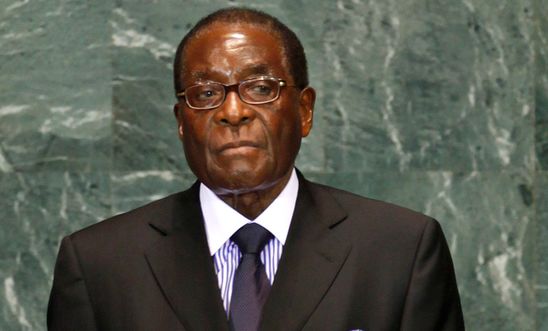
Press releases
Zimbabwe: Robert Mugabe was a 'liberator turned oppressor'

Mugabe was adopted as ‘prisoner of conscience’ by Amnesty after being jailed during resistance years
‘Mugabe leaves behind permanent scars of his brutal rule’ - Muleya Mwananyanda
Robert Mugabe, the former leader of Zimbabwe who has died aged 95, was a liberator turned oppressor, said Amnesty International today.
During his 37 years in power from 1980 to 2017, Mugabe presided over the brutal repression of political opponents and established a culture of impunity for himself and his cronies, while his government implemented a series of policies that have had disastrous consequences.
Though Mugabe’s early years as leader - following the transition from British colonial rule - saw some notable achievements, including dramatic improvements in health and education rates, it also included massive human rights violations.
Throughout his presidency, general elections were marred by spikes in serious human rights violations by state security agents and ZANU-PF activists. Opposition supporters suffered torture, harassment, intimidation and even death.
During the 1980s, in a military crackdown, known as “Gukurahundi” (“the early rain which washes away the chaff before the spring rains”), some 20,000 people - many suspected opposition supporters - were killed in Matabeleland and Midlands provinces. Many of the dead were unarmed civilians. Amnesty’s calls at the time for the prosecution of the perpetrators went unheeded. In a warning that would prove prophetic, Amnesty said that a failure to hold anyone accountable for the Matabeleland and Midlands killings would set a dangerous precedent.
An increasing reliance on his security services to suppress dissent within and outside his party became a hallmark of the later years of Mugabe’s rule. Opponents - including human rights defenders, journalists and opposition party activists - were locked up on politically- motivated charges or under draconian laws. The less fortunate were killed. Mugabe was also aggressively opposed to LGBTI rights, saying LGBTI people were “worse than dogs and pigs”.
In efforts to escape persistent repression and a shrinking economy, an estimated three million Zimbabweans have left the country since 2000.
Muleya Mwananyanda, Amnesty International’s Southern Africa Deputy Regional Director, said:
“While casting himself as the saviour of Zimbabwe, Robert Mugabe inflicted lasting damage upon its people and its reputation.
“Whenever Mugabe felt under pressure he defaulted to sanctioning human rights violations, publicly defending the actions of his officials.
“Mugabe leaves behind permanent scars of his brutal rule. Going forward, those who come after him must forge a national healing programme, beginning with accountability for the past human rights violations.”
Prisoner of conscience
As a leader of the resistance to the white minority government of what was then known as Rhodesia, Robert Mugabe began his political life fighting against injustice. Imprisoned and later exiled for his political activities, he was one of more than 900 prisoners of conscience adopted in Zimbabwe by Amnesty between 1965 and 1979. Boosted by his image as a champion of the victims of imperialism, Mugabe became Zimbabwe’s first post-independence prime minister in 1980 on a platform of reconciliation.
Select timeline of human rights violations
In 2000, Mugabe sanctioned a violent land reform programme, ostensibly to redress skewed land distribution resulting from 90 years of colonial rule. While the need for land reform was legitimate, Mugabe used the redistribution programme as a system of patronage, rewarding his supporters with land while denying those considered political opponents. The programme was also used as a front to disguise the violent targeting of farm workers who had supported the opposition.
In 2005, Mugabe presided over one of the most disastrous forced eviction campaigns in African history. Known as Operation Murambatsvina (“drive out trash”), it targeted urban shack dwellers. The UN estimated that 700,000 people had their homes or livelihoods (or both) destroyed. Evictions drove most of the affected people deeper into poverty, with many forced to live without access to health, education and other basic services.
In 2008, following his first-round ballot loss to the Movement for Democratic Change candidate Morgan Tsvangirai, the army unleashed a wave of violence in which more than 300 people were killed and thousands injured or tortured on suspicion of having voted for the opposition. The response saw Tsvangirai withdrawing from the second round of voting.